Ending Violence Against Women
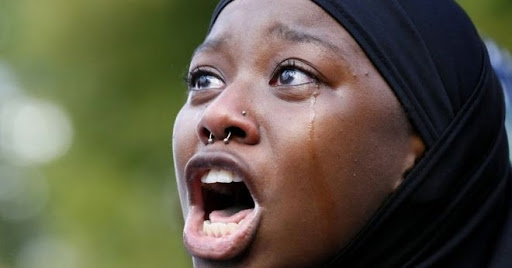
Image Credit: BBC – AFRICA’S A COUNTRY There is a concerted effort to keep women ‘in their place in society’. It doesn’t matter if it is in the seeming free societies of the Europe, Australia, America or South East Asia; the strict societies of the Middle East; the budding developments of Africa; or the backwater towns of each of these regions. The common factor is that society has carved out a place for women and girls and when they refuse to stay in ‘their lane’, they are most often met with violence. Even worse than that is the number of women who stay in ‘their place’ and still suffer the debilitating effects of violence; domestic abuse, rape, female genital mutilation, overbearingly hard labor, child marriage, improper healthcare leading to extremely painful childbirth, maternal mortality and more. Violence against women has become a disease that has been permitted to stay; a disease that is fueled by patriarchy, misogyny, bigotry and the pervading view that women are less than men. Since the dawn of time, many women have accepted their lot in life and have never questioned the status quo. When some women stand up against the injustices that society metes out to them, they are met with resistance from men, which is expected, and from women too, which is just sad. We admit that men are not the only proponents of patriarchy and the irony isn’t lost on anyone. This means that in ending violence against women, the mandate has to go back to women. Women have to be taught that; 1. We are human beings first and thus, equal to men. We are not by nature of our gender less than men; be it physically, emotionally, mentally or psychologically. Some of our physiology may be different but we are inherently equal; 2. The ONLY thing a man can do that a woman CANNOT do is provide sperm. In like manner, the ONLY thing women can do that men CANNOT do is carry a child from fertilization to term and produce milk to suckle the child. These two things are purely physiological; 3. Women are emotional beings who are logical too. Just as men are. It is pure fallacy to think that women are ONLY emotional and men ONLY logical. This ruse has been used to keep women in ‘their place’ when it comes to leadership, governance, family direction and the likes; 4. Women CAN and WILL do any and everything they set their minds to and shouldn’t believe otherwise. She can be an astrophysicist or a housewife. Women have the brain capacity to do it all; 5. Women are not to be corrected with physical abuse. There is no cause – just or otherwise – for hitting a woman. When she does wrong, she should be told she has done wrong and allowed to learn from her mistakes. Flogging, beating, slapping, cutting, hitting or punching her is NOT ACCEPTABLE! Under no circumstance is spousal abuse right; 6. It is not a woman’s fault that she is raped or sexually assaulted and abused. It is the perpetrator’s fault. The entire blame lies with the abuser. A woman does not invite rape by dressing in a certain way, or by being on the bus alone, or by wearing make-up, or by putting pictures on her social media platforms, or by walking home in the dark, or by hanging out with that male friend, or by refusing her husband sex or by trusting that uncle (or brother, father, family friend, teacher or anyone she knows) and a woman definitely doesn’t invite rape by having her own opinions and standing for them; 7. Women have every right to have and hold their own opinions, whether similar or vastly different from popular norms, without fear of harassment and abuse; 8. Women have a right to inheritance and ownership of property without being harassed by male family members or in-laws. The home wives live in with their husbands and children is as much theirs as it is their spouses. No one has the right to evict them from their homes in the event of the demise of their husbands. Adding to that, women are not to be treated in barbaric and unfair manner to prove that they are not culpable in their husband’s death. People die! deal with it; 9. No woman should have to face ANY FORM of female genital mutilation. Every organ on the body has its use and function and beyond that, it is not beneficial to any woman to have part of or all of her external genitalia removed in the guise of enforcing sexual purity. Female genital mutilation is a totally unhealthy, irrelevant and an unnecessary procedure and must be stopped globally; 10. Every woman is as sexual a being as men are. A woman’s urges and desires does not make her a ‘whore’, ‘prostitute’ or even loose. If a woman who chooses sexual freedom is to be labelled, men who do same should be labelled too. The wanton double standards have to come to an end! Some women, like some men, have higher libido than others and THAT IS OKAY! A woman has the right to explore her sexuality without fear of being labelled or worse, attacked. She has the right to make her own choices of chastity or sexual freedom without being forced to tow a line; 11. Women ARE NOT PROPERTY! They are not to be bought and sold like goods in the open market; whether it is for marriage or for forced prostitution. A woman is a full, living, breathing person and selling her not only demeans her humanity, it speaks of character so vile it has to be purged. No woman should be a slave to anyone and; 12. EVERY WOMAN is entitled to proper healthcare from birth until death. She shouldn’t have to die from diseases or childbirth because her family or spouse do not believe in modern medicine or the importance of hospitals.
#JusticeForChisomAnekwe: WHY YOU NEED TO JOIN THE CAMPAIGN
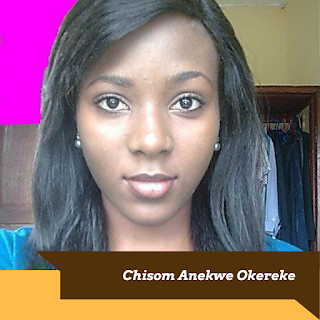
I was scrolling through my Facebook timeline and happened on this story by Milly Milly. This is Chisom Anekwe (nee Okereke), a young, vivacious, graceful, kind-hearted and intelligent woman who had devoted her life to helping indigent kids and giving their lives a meaning. She’s an alumna of LEAP Africa. Two weeks ago, precisely April 30th 2017, Chisom died under questionable circumstances at Magodo Specialist Hospital while trying to birth her third offspring. We believe strongly that the authorities need to ensure that lives are taken sacred in hospitals like Magodo Specialist Hospital where such avoidable deaths are recorded. Chisom was admitted in the hospital four days before she got into labour. She had previously been diagnosed of high blood pressure during the course of the pregnancy. She already had two beautiful daughters birthed in the same hospital and was there to birth her third child, a son. While at the hospital, no one attended to her when she needed the help to be delivered of the long awaited baby. She was left for hours in labour. This happened until her husband created a scene, which eventually caused the doctors to go to her ward and on inspection they found out that the baby had struggled and died. The husband at this point requested for a CS which he paid for and even signed the consent form presented by the hospital. He was then tricked out of the room to go prepare for blood transfusion and on getting back, he found out that the doctors had induced the wife and delivered the dead baby without operation not minding that the CS procedure had been paid for. This was also without his consent. During the process of delivering the baby, the uterus got ruptured and the doctors left her like that, no further attendance still. Shortly after, the husband noticed she was swelling up in her stomach area and called the attention of the doctors who said they were getting ready for a surgery, a preparation that took longer than usual. After waiting in vain for the surgical team, the frustrated husband went furiously to the reception to demand why they were wasting time only to discover the doctor had sneaked out of the hospital under funny pretences. At this point he got other hospital staff to wheel her out of the hospital and in that process Chisom died! This is the story of most young women who die while giving birth as a result of the callousness, ignorance and carelessness of inexperienced doctors. In this era, we shouldn’t be talking about Child and Maternal Mortality especially when it can be avoided. This could have been avoided but it wasn’t and now Chisom Jane Anekwe is a victim and has been added to the statistics. We demand; 1. That Magodo Specialist Hospital, Shangisha, Lagos, be investigated for their actions and the subsequent death of Chisom. 2. That both the Nigerian Medical Association NMA and the Medical and Dentist Council of Nigeria, MDCN ensure that supposed Specialist Hospitals who claim to have a resident Gynecologist are verified. 3. That there be justice for Chisom Okereke Anekwe! #SaveTheNextVICTIM #Justice4Chisom #Fight4OurDaughters Cc: Ihunegbo Ikechukwu Moses This hurt me so bad when I read it. There are lot of questions that ran through my head while reading. Questions like; 1. Why no one attended to a woman who had pregnancy induced high blood pressure? If she was admitted four days before she went into labor, didn’t that mean her impending birth was high risk?; 2. Why the husband had to cause a scene before the Magodo Specialist hospital staff deemed it fit to do their jobs?; 3. Was the negligence the cause of the baby’s death? If so, shouldn’t the hospital be brought to book for TWO deaths?; 4. If the request for a caesarean section by the husband was considered unnecessary or out of his area of expertise, why did the doctor acquiesce and have the hospital collect his money?; 5. Is uterine rupture a real thing? The answer is yes! So if that happened to Chisom, why was she left unattended?; 6. Why did the doctor run if he done his job as ethically and professionally as he should have? While I am cautious about calling out and blaming doctors, especially because I don’t know what extenuating circumstances precede their decisions, I think this doctor and the staff on duty were negligent on many grounds. This story is not unusual as many of our hospitals – public and private – are hubs of pain infliction instead of the other way round. Our doctors are overworked and tired, nurses are apathetic and in many cases, downright cruel, and other staff seem immune to the suffering of the sick. A life was lost because we run systems that allow incompetence, negligence and apathy for people’s suffering. Chisom is dead as a result of this failing system but we can prevent the next case of death-by-malfeasance. There is a campaign going to now seeking justice for Chisom and we can be a part of it. Join the campaign here and help prevent another senseless death of that mother, sister, wife, cousin, aunt, niece, friend, colleague or neighbor. We pray that Chisom’s family finds strength in this trying time. And beyond that, what needs to be done to improve our health sector so there isn’t a continued waste of Nigerian lives?
International Day of Tolerance
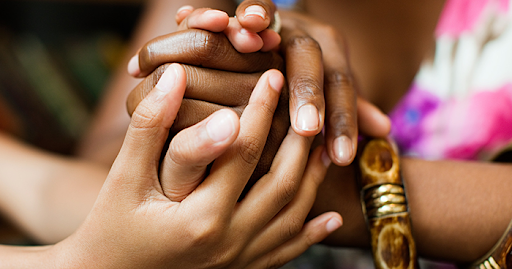
Tolerance Picture Culled from: ODYSSEY Tolerance. Noun tol•er•ance ˈtä-lə-rən(t)s, ˈtäl-rən(t)s : Willingness to accept feelings, habits, or beliefs that are different from your own Merriam-Webster Dictionary A relatively simple word. Why then is so hard to understand? Why is it so difficult to apply in our everyday lives? The world is filled with greatly intolerant people unwilling to understand that by virtue of our humanity, race, gender, sexuality, nationality, tribe or religion, we CANNOT ALL HAVE THE SAME VIEWS OR BELIEFS. This lack of understanding has led to tribal and religious conflicts and violence, wars, terrorism, genocide, supposedly honorable killings, mob violence and so much more. Sometimes, intolerance leads to denial of an individual’s basic human rights; which in some cases is more terrifying than been killed. We believe that every human being has a right to the following; 1. A right to believe in any set of religious tenets they choose and in like manner, a right to not believe in any religion or God; 2. A right to be treated equally regardless of race, tribe, gender, sexual orientation, nationality, social strata, physical disability or level of education; 3. A right to dress in whatever manner a person chooses; 4. A right to hold views, opinions, beliefs or thoughts about any and every thing; 5. A right to form ideologies and belief systems based on the knowledge they have; 6. A right to share knowledge without forcing it down people’s throats or coming to harm for sharing that knowledge and best of all; 7. A right to believe differently from the norm or popular belief, culture, law or tradition. We believe these core values come with a limitation; that our beliefs SHOULD NOT cause harm to any human life. We may not have the same beliefs but we can TOLERATE each person’s right to their own. This mean that even if something goes against our core values, we have no right to try and force others to live, think and believe as we do. We have to find a way to respect people’s differing opinions; even if we dislike their views. As the world marks the INTERNATIONAL DAY OF TOLERANCE (as done every year on November 16 since 1995) we urge you to be more tolerant of one another and of people (slightly or vastly) different from you. We also urge you to shun bigotry, racism and perceived racial supremacy, sexism, religious intolerance, gender bias and inequality, forced sexuality and sexual orientation and all other forms of intolerance. If we do this, maybe Africa – and the world in general – can be a much better place. Do your part! Join the fight and stop intolerance today!
World AIDS Day
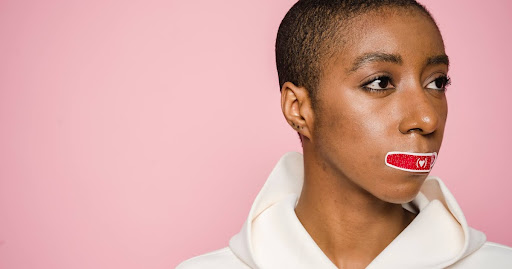
Photo by Klaus Nielsen from Pexels Today is marked globally as WORLD AIDS DAY. HIV/AIDS is still a problem in many African countries, with adolescent and young female adults being more at risk. The global HIV statistic put together by UNAIDS IN 2016 showed that; 1. 18.2 million [16.1 million–19.0 million] people were accessing antiretroviral therapy (June 2016) 2. 36.7 million [34.0 million–39.8 million] people globally were living with HIV (end 2015) 3. 2.1 million [1.8 million–2.4 million] people became newly infected with HIV (end 2015) 4. 1.1 million [940 000–1.3 million] people died from AIDS-related illnesses (end 2015) 5. 78 million [69.5 million–87.6 million] people have become infected with HIV since the start of the epidemic (end 2015) 6. 35 million [29.6 million–40.8 million] people have died from AIDS-related illnesses since the start of the epidemic (end 2015) But it is not just grim news. The fight against HIV/AIDS is working as shown by UNAIDS Get on theFast-Track: the life-cycle approach to HIV; ‘The world has committed to end the AIDS epidemic by 2030 as part of the Sustainable Development Goals. We are seeing that countries are getting on the Fast-Track—more than 18 million people are on life-saving HIV treatment and country after country is on track to virtually eliminate HIV transmission from mother to child.’ HIV is no longer a death sentence. You can live fully functional and effective lives like Fara James, who has been living with HIV for 22 years. We support preventive measures against HIV/AIDS. Measures like knowing that HIV can only be transmitted via; · Blood; · Semen; · Pre-seminal fluids; · Rectal fluids; · Vaginal fluids; · Breast milk; and · Mother-to-child transfusion. HIV cannot be transmitted through casual contact with a person infected with HIV; casual contacts like a handshake, a hug, or a closed-mouth kiss. And you can’t get HIV from contact with objects such as toilet seats, doorknobs, or dishes used by a person infected with HIV. This means there is no reason to discriminate against people living with HIV or AIDS. You can however reduce your risk of contracting HIV by; · Get tested and know your partner’s HIV status; · Have less risky sex. Oral sex is much less risky than anal or vaginal sex. Anal sex is the most risky type of sex for HIV transmission; · Use condoms; · Limit your number of sexual partners. The more partners you have, the more likely you are to have a partner with HIV whose HIV is not well controlled or to have a partner with a sexually transmitted disease (STD); · Get tested and treated for STDs; · Talk to your health care provider about pre-exposure prophylaxis (PrEP). PrEP is an HIV prevention option for people who don’t have HIV but who are at high risk of becoming infected with HIV. PrEP involves taking a specific HIV medicine every day. PrEP should always be combined with other prevention options, such as condoms. For more information, read the AIDSinfo fact sheet on Pre-Exposure Prophylaxis (PrEP); · Don’t inject drugs. But if you do, use only sterile drug injection equipment and water and never share your equipment with others. And if you are HIV positive, don’t be ashamed to visit a doctor and get medication. Shame hasn’t helped anyone. Take your medication daily and live a proactive life. And use same preventive methods as listed above. HIV/AIDS is a disease, not a reason to stigmatize someone. Show someone love today. You never know how far it will go.
1 Girl 1 Pad Campaign
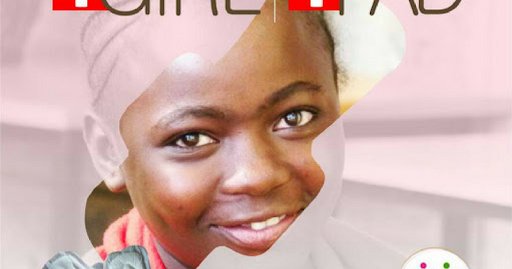
Shades of Us is a forum for open discussions on issues affecting Africa, Africans and people of African descent, with a view of changing the ‘dark continent’ narrative of Africa. Since our inception in 2014, most of our work have been online campaigns for or against social issues and dysfunction. At the start of the year, we pledged to start doing more people-to-people work to affect our society; one community at a time. It is in lieu of this that we are partnering with Save our Women (SOW) Foundation for the ‘1 Girl, 1 Pad’ campaign. Save Our Women (SOW) Foundation seeks to help young girls be their best in everything they do. Also partnering with Save Our Women (SOW) Foundation is Women Regaining Value, a not-for-profit organization aimed at empowering women lost to social degradation. Here is what you need to know about the project and how you can be a part of it. WHAT IS ‘1GIRL 1PAD’? ‘Project 1Girl 1Pad’ is a campaign that is aimed at reaching out to young women in Internally Displaced Persons camp in Kaduna. This campaign would involve engaging women in Kaduna and its environs to donate a single pad towards the success of the campaign. Our goal is to ensure every female in the selected IDP camp has enough pads for the next 3 months assuming she has a menstrual period of 3days. WHY ‘1GIRL 1PAD’? Girls in IDP camps have had a hard time maintaining menstrual hygiene during their periods due to the inability to have and purchase sanitary pads. So ‘1Girl, 1 Pad’ project seeks to help these girls by providing pads through building a culture of giving back and volunteerism among women. WHEN IS ‘1GIRL 1PAD’? The campaign ends with a visit to an IDP camp on the 28th of May, 2017, in commemoration of International Menstrual Hygiene Day. The build up to the campaign will run all through May with campaign awareness visits to schools in Kaduna. HOW CAN I BE A PART? Make a donation of a pad today. You can also ask your friends and followers to be a part of the campaign by sharing posts about the project using the #1Girl1Pad and #May28 hashtags. To donate a pad, contact the following people;
When No One Is Looking
Photo by Gantas Vaičiulėnas from Pexels As long as I can remember, I have always cared about the issues that affect Africa, Africans and people of African dissent, with special focus on how these issues affect women and children. Even as a child in primary school, I can remember expressing anger at people who treated women and children poorly and standing up for the girls in my class. It would not be far-fetched to assume I was born this way, having what can be described as a gnawing need to lend my voice to women and children’s issues. I was probably around 10 years old when I learned about basic human rights and the government’s role in protecting them. Without meaning to, that became my Bible and code of conduct. I started creating content from a very young age. I wrote stories and school plays that centered women and children in roles that were not usually associated with their sex or age. These stories became church dramas because for most of my teenage years, I found expression in the church. Granted, most of what I created then was quite gruff and had a diamond-in-the-rough kind of feel but a central theme shone through all my pieces: women and children were human in themselves and needed to be treated with the full respect accorded to them by their basic rights. I remember a play I wrote that we performed in church. It started with the parents of the lead character – a young teen – finding out that she was pregnant. Rather than be judgmental, it promoted allowing yourself to be hurt if your child gets pregnant ‘out of wedlock’ but, loving (and supporting) the child regardless. It showed that children were themselves overwhelmed by the consequences of their actions and beating them or kicking them out of the house was not a fair way to handle the issue. This play connected so well with people that the way teen pregnancies were handled – a problem that was predominant in the community where the church was situated – became markedly different. It was for this openness that I was chosen when I was about 14 years to be part of a peer-education capacity building session on complete sexuality education. This opened my mind’s eye to the Millennium Development Goals and a world bigger than the things my environment had constrained it to. I began to actively promote these goals because I was: unhappy that the world didn’t take the eradication of extreme poverty and hunger as seriously as it should; wondering what could be done to achieve universal primary education; sure I needed to actively promote the idea of gender equality and the need to empower women; broken at the rate of child and maternal mortality and wondering how I could help; hated all discriminatory acts to people living with HIV/AIDS in a world where it was okay to do so; didn’t want anyone to die from Malaria or any other disease that could easily be prevented with small lifestyle changes; and, hated that our environment was gradually becoming dirty and unsustainable as a result of poor sanitation due to reduced enforcement of communal environmental protection activities. These issues became my issues. They mattered to me. And I wanted to do something about them. As I grew from teenager to young adult, I began to refine the areas that I was interested in. While I wanted to work in the field to directly help women and children, I knew it was cost heavy and living on the poverty line myself at that time, I didn’t think there was much I could do to help these people. So, I chose a path that centered more on creating content that could cause a mind shift in the general public and change behaviors that put women in boxes marked, ‘second class citizens’. I continued to write stories and plays for church, making sure to include the women empowerment nuggets in the overall message of the Christian faith. With the advent of social media, I found a bigger outlet for my work…especially as I was questioning faith and removing myself from the church. I began to share my views – my very gruff and many times, antagonistic views – on my social media platforms. A friend told me about blogs and the possibilities they held for massive, and maybe even global, reach. So, I learned about this new frontier of communication and started my blog: Shades of Us. I continued to evolve as a person, finding more perspectives to human rights and seeking even more succinct ways to communicate my ideas around them. When I heard the word ‘feminist’ during Chimamanda Ngozi Adichie’s TedX Talk – We Should All Be Feminists – I knew this was the word that perfectly described exactly who I was and the issues that mattered to me. So here I was: Ramatu Ada Ochekliye, creating content around the Sustainable Development Goals and hoping I could change the world with my words. But, reality check. The world really doesn’t want to be changed. If the world has its way, it will continue to be patriarchal, misogynistic and abusive to women and children. It would continue to express hate against people whose sexuality is different from the accepted norm. It would continue to be intolerant of people’s rights to association, religion, belief and dignity. This is why, my work – and the work of other feminists, human rights activists and advocates, and anyone who just believes in the basic rights of all human beings across the world – can be really tasking. Nobody tells you that it is easier to maintain the status quo, as oppressive as it is, than it is changing anything. And because of this, many activists suffer the painful burnout that comes with wondering if their work even means anything. Oh! There are many reasons to keep

